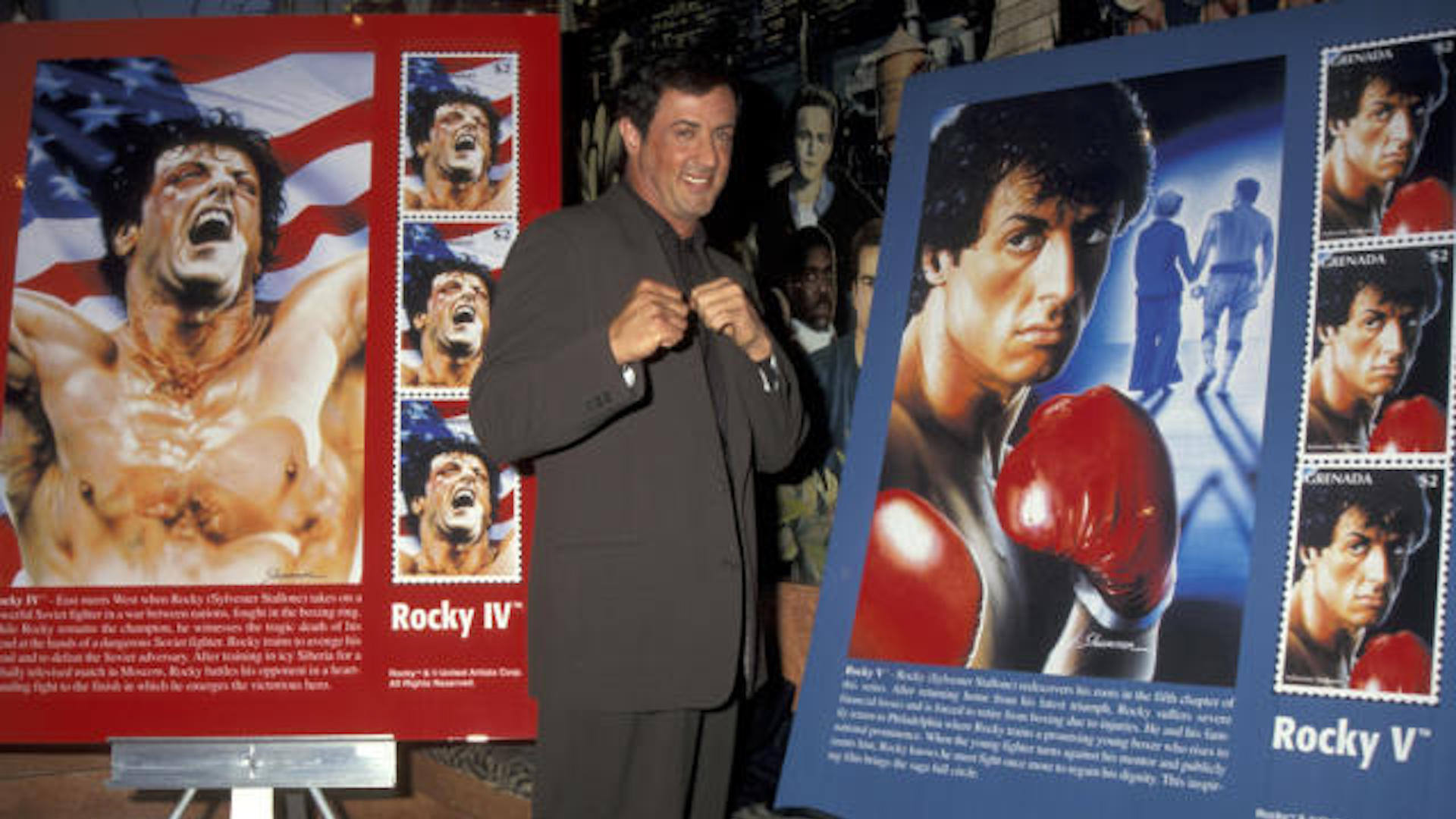Punching Above Your Weight: How 'I Play Rocky' Makes a Case for Writing Biopics
May 23, 2024
“Yo, Adrian!”
Just reading that line of dialogue, you can hear Rocky’s distinctive working-class Philadelphia accent clearly in your mind. That’s how iconic the film Rocky from 1976 has become. Actor and screenwriter Sylvester Stallone is synonymous with the character Rocky. Today, we think of the original film (that spawned four sequels and the Creed franchise) as the classic American sports movie.
But did you know that Stallone almost didn’t get to play the beloved character in the screenplay he wrote? Like Rocky, Stallone was relentless in pursuing his dream to play the pugnacious pugilist on the big screen. Now, an upcoming film will depict Stallone’s journey to become one of the most beloved sports movie icons of all time.
From the Cannes Film Festival, Deadline announced that Peter Farrelly will direct I Play Rocky, a biopic about Stallone’s struggle and ultimate triumph as he attempted to convince film studios to let him play the lead.
The logline for I Play Rocky is:
A struggling actor with a partially paralyzed face and a speech impediment writes a script that a big movie studio wants to buy, but he refuses to sell it unless he gets to play the lead.
I’d go see that. I bet you would, too. Why? Because we love true stories that both surprise and move us. Movies about real people risking it all to follow their dreams inspire us in ways that purely fictional characters simply don’t. Knowing that a real person underwent hardships, catastrophes, or suffering and became stronger because of it lifts our hearts to new levels. It gives us hope.
So, if you’re inspired to write a biopic, here are a few things I Play Rocky can teach you about doing it right.

Personal Connection to the Subject
If you decide to write a biopic, it’s likely because a real person inspired you in some way. Dig deep into that inspiration and determine why that person is such an important hero (or villain) in your own life. Find that string that connects you to this person and let it guide you in the writing.
This connection will likely lead you to the theme you want to explore in your script. The more personal your connection, the better. The more specific you can get, the more people will relate to it.
When I interviewed writer Richard Tanne about his 2016 film Southside with You, a biopic that takes place during Barack Obama's and Michelle Robinson's first date, he said this:
“I don’t think it’s an accident that I was getting serious about [writing the screenplay for Southside with You] when I was falling in love. After having my own epic first date with my girlfriend, then our connection deepening and me feeling like I was becoming a better person because of her, I really started to understand how to tell the Obama first date story. I felt that what was happening to me must have been what happened to the Obamas: two people elevating each other. That became my entry point. But it’s not just about you or the Obamas' first date, it’s about everyone’s first date. It’s universal in that way."
Read More: 5 Ways To Write a Modern Biopic

Finding Authenticity
Any writer tackling a true story would need to do research—tons of research—to make the person and real-life events line up with history. But authenticity is more than getting your facts straight. The movie magic comes when you determine how to fill in the gaps between those real events and the motivation for doing what they did. Understanding how the person changes as a result of their actions is the fuel that powers the story.
Screenwriter Michael Brandt wrote the screenplay for the 2024 film Arthur the King, based on the memoir Arthur: The Dog Who Crossed the Jungle to Find a Home by Mikael Lindnord. The memoir included all the details of the actual adventure race Lindnord was running and how he gave meatballs to a stray dog. But Brandt knew he needed to go deeper to understand how Arthur authentically changed Lindnord as a person.
Luckily, Brandt met and talked with Lindnord—a luxury you don’t have if you’re writing about a historical figure. The men talked about Lindnord’s father and the demands his father and the military put on him.
“This is a guy [Lindnord] who never really had a relationship where he was close to someone other than his wife. He’s never been selfless before, and then here comes somebody [Arthur the dog] who teaches him about that,” says Brandt to ScreenCraft.

Relevance to What’s Going on Now
If you’re going to tell a story about a real person and depict real events, the story needs to be relevant to something happening currently in the zeitgeist. Otherwise, the story doesn’t have urgency.
The 2023 film Dumb Money, written by Lauren Schuker Blum & Rebecca Angelo, tells the story of the wild rollercoaster ride that the GameStop stock went on a few years ago. It also exposed what many people feel is the unscrupulous nature of Wall Street and how the system seems to discriminate against the little guy. The film opened at the height of the Writers Guild strike in 2023, and Schuker Blum and Angelo were able to draw parallels between Hollywood and Wall Street.
“This is a movie about recognizing that the system is broken and people coming together through collective action to achieve change,” said Angelo to ScreenCraft. “It’s what happened on Wall Street, and it’s the same story we are going through in Hollywood. People are justifiably angry because power, information, and wealth are concentrated among an elite few and there’s no dignity to our labor anymore. The system is rigged and it’s unfair and the only path forward in our view is through transparency. That’s exactly what the crew who followed Keith Gill was fighting for and that’s what we’re fighting for, too.”

---
Beyond I Play Rocky, some of the best movies of recent years have been biopics. Films like Oppenheimer, Maestro, Napoleon, Iron Claw, Killers of the Flower Moon, Spencer, Priscilla, and King Richard have all told stories about real people that made us see that person in a new light. Considering the success and popularity of all these films now is the time to jump on the bandwagon and start writing that biopic you’ve been putting off.
For screenwriters, biopics are an opportunity to tell stories that are not only powerful but personal, authentic, and relatable to today’s audience.
So, don’t wait for I Play Rocky to get released before starting the biopic of your choice. If you get writing now, you have plenty of time to go the distance, the way Rocky does in the film. Let this be a gentle push to be like Rocky and follow your dreams.
Written by: Shanee Edwards
Shanee Edwards is an L.A.-based screenwriter, journalist and novelist who recently won The Next MacGyver television writing competition to create a TV show about a female engineer and was honored to be mentored by actress/producers America Ferrera. Shanee's first novel, Ada Lovelace: The Countess Who Dreamed in Numbers was published by Conrad Press in 2019. Currently, she is working on a biopic of controversial nurse Florence Nightingale. Shanee’s ultimate goal is to tell stories about strong, spirited women whose passion, humor and courage inspire us all.- Topics:
- Screenwriting & Craft




